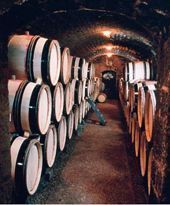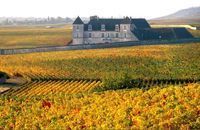 | The objective is to make wines with structure and delicacy - with concentration as well as charm. The balance of a wine is essential: refinement and complexity are the hallmarks of great Burgundies wines and represent the desired goals throughout the wine making and ageing processes. Of course, this notion cannot be separated from that of terroir. Various procedures are implemented to carry out this objective: vine-growing techniques that try to favour the natural balances, reveal the terroir and keep yields in check, careful harvesting by hand, and sorting grapes prior to a winemaking procedure characterized by minimum interference. This encourages the freshness, the expression of the fruit and the personality of each wine rather than simple extraction. Richebourg is a king of a wine: the colonnade of the Louvre, the Château of Versailles. You are impressed by its finesse, its length and its delicate sensations, endlessly changing. The fact that no element dominates the others enables you to appreciate all of its aromas, on the nose and on the palate. |
Clos Vougeot is this a wine which expresses the Cistercian rigour. Its image is rather that of a refined gentleman: the grapes mature early here, but still give wines of great finesse, with a lace-like texture, which lines the palate, with superb length. Corton Clos Regnets represents silkiness, smoothness and authority. Its vines produce a robust wine with astonishing ageing capacity. It is always very mature and therefore offers us sweet aromas and a well-rounded texture; its structure is sometimes pronounced in the finish. Even if this wine may appear to be generous, it nevertheless commands respect. Échezeaux is loyal to its appellation through the finesse of its attack on the palate and its overall balance. But it's also a wine with pronounced acidity, which gives it freshness and structure and bestows upon it a sometimes austere finish. |  |